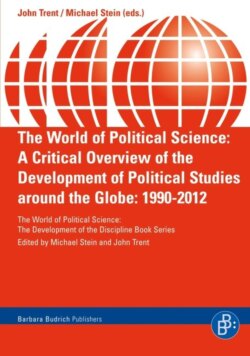Читать книгу The World of Political Science - Группа авторов - Страница 20
На сайте Литреса книга снята с продажи.
5. The Development of Political Science in China 5.1. Historical Background
ОглавлениеChinese political science went through complex twists and turns since its reencounter with the West and Japan (Guo 2006). In the late 19th century and early 20th century many young Chinese students went abroad to study. Some Chinese got their Ph.D.s in the United States, especially in the 1920s, 1930s and 1940s. Qian Duansheng did a Ph.D. at Harvard in the 1920s. Prominent politicians like Zhou Enlai and Deng Xiaoping went to Japan and to France respectively. The period was that of Republican China, especially under the Nationalists and included a steady Japanese influence in Manchuria, North China and beyond. Those students brought back many ideas of politics including Marxism. After the Communist victory in 1949, many Chinese students went to study in the Soviet Union, mostly in the field of engineering, (civil, hydraulic, mechanical, nuclear), however. These long dark ages were over when Deng Xiaoping called attention to political science in 1979. To quote Deng:
“Political science, law, sociology and the studies of world politics were ignored by us for many years; now it is necessary to make up the loss as soon as possible.“
Accordingly, the Chinese Political Science Association was established in 1981 and Chinese political scientists gradually set up departments of political science step by step. Most famous and largest are those of Peking and Fudan universities. Their task was to introduce concepts and theories whereby new developments in politics and international affairs can be comprehended better than Marxism-Leninism-Mao Zedong Thought allowed them to do. With the dissolution of the Communist bloc, the Chinese communist leaders had to resolve the conundrum of activating market mechanisms fully while politically retaining communist power intact. Thus the political science concepts and theories originating from the United States and Western Europe were translated into Chinese with zeal and vigor. Such authors as John Rawls, Alexander Hamilton, Alexis Tocqueville and Samuel Huntington give the range of translation conducted for the last decades. Also noteworthy is the translation of the “Contemporary Political Science Library” of the University of Tokyo Press into Chinese by the Zhongguo jingji ribao chupanshe, starting in 1989. The Library consists of fairly standard political science textbooks on such subjects as the state and society, war and peace, political participation, and revolution. Its editor is the author of this chapter. Noteworthy about this translation is the fact that Yan Jiaqi, a noted democratic activist and then director of Institute of Politics at the Chinese Academy of Social Sciences, was one of those who extended encouragement and help to the translators’s team of the Library. My introduction to the Chinese edition of the Library acknowledged his help as well as that of some other noted academics. But in the turmoil of the Tiananmen Democracy protests and suppression, his name was deleted when it appeared in Chinese in November 1989. The Library is still widely used, especially in Peking University. Citing this episode is intended to give an impression of the atmosphere in China on the eve of the Tiananmen Democracy protests and suppression. The volumes in the Library vary in terms of their nature. Some are straight digestion and introduction of American and Europan concepts and theories. Others place them in the context of Japanese politics to see how well American concepts fit Japanese reality or not. Both the former kind and the latter kind of volumes in the Library seem to satisfy the Chinese interest in how to familiarize themselves with Western theories and how to use some of them to analyze Chinese reality by looking at how Japanese have been doing this in slightly earlier periods.
